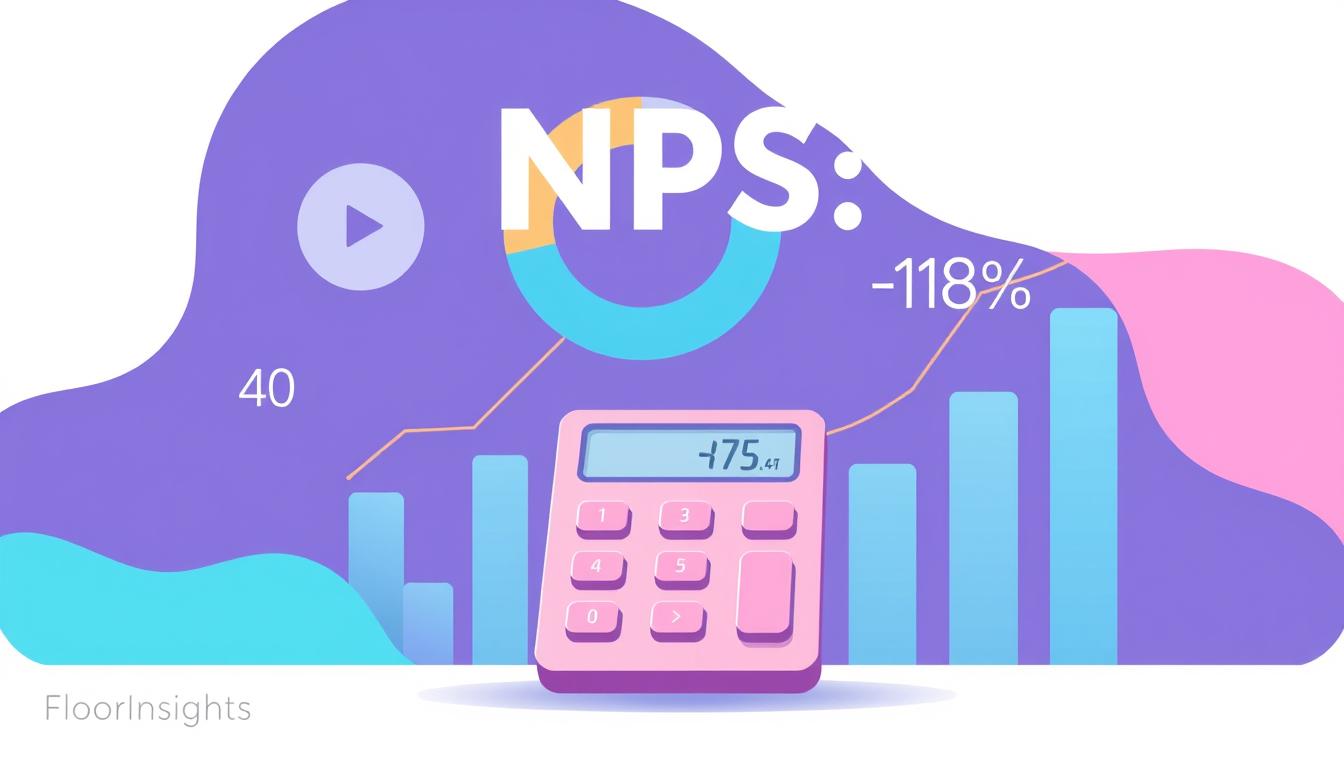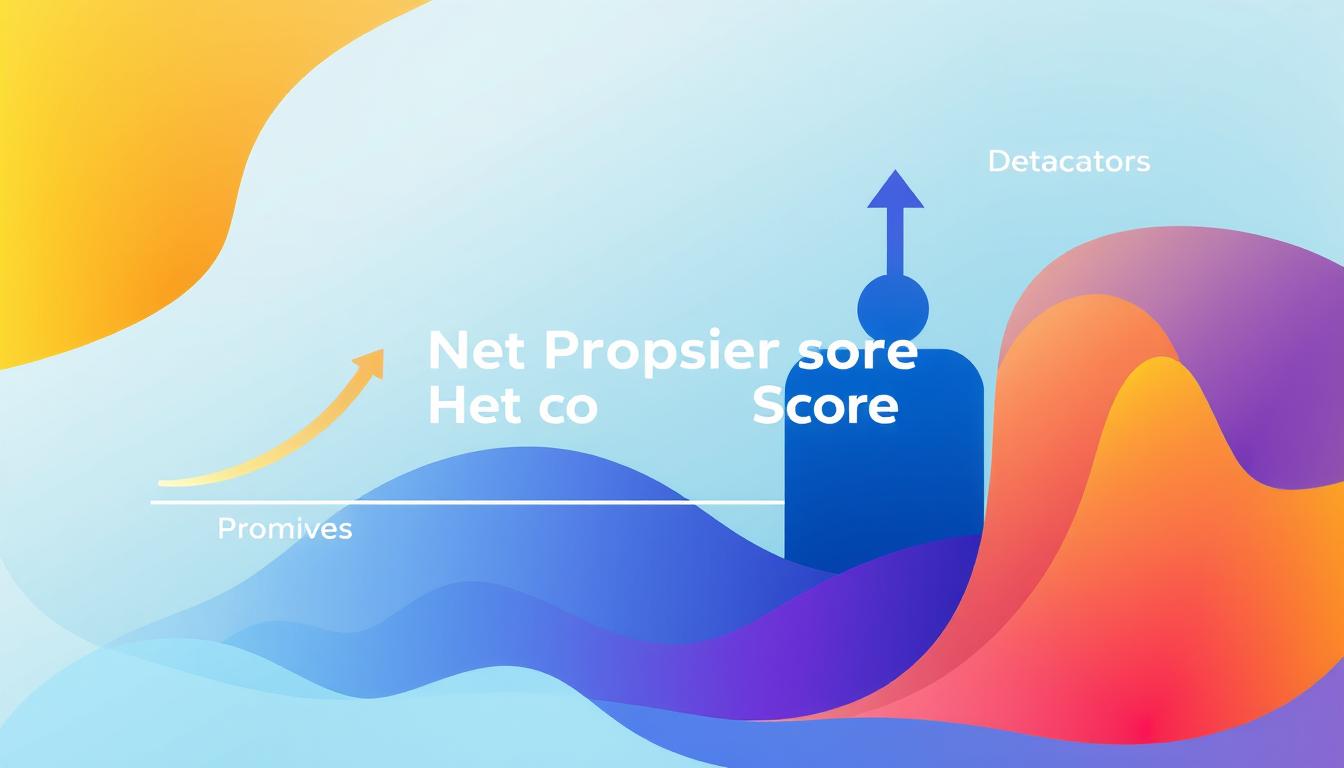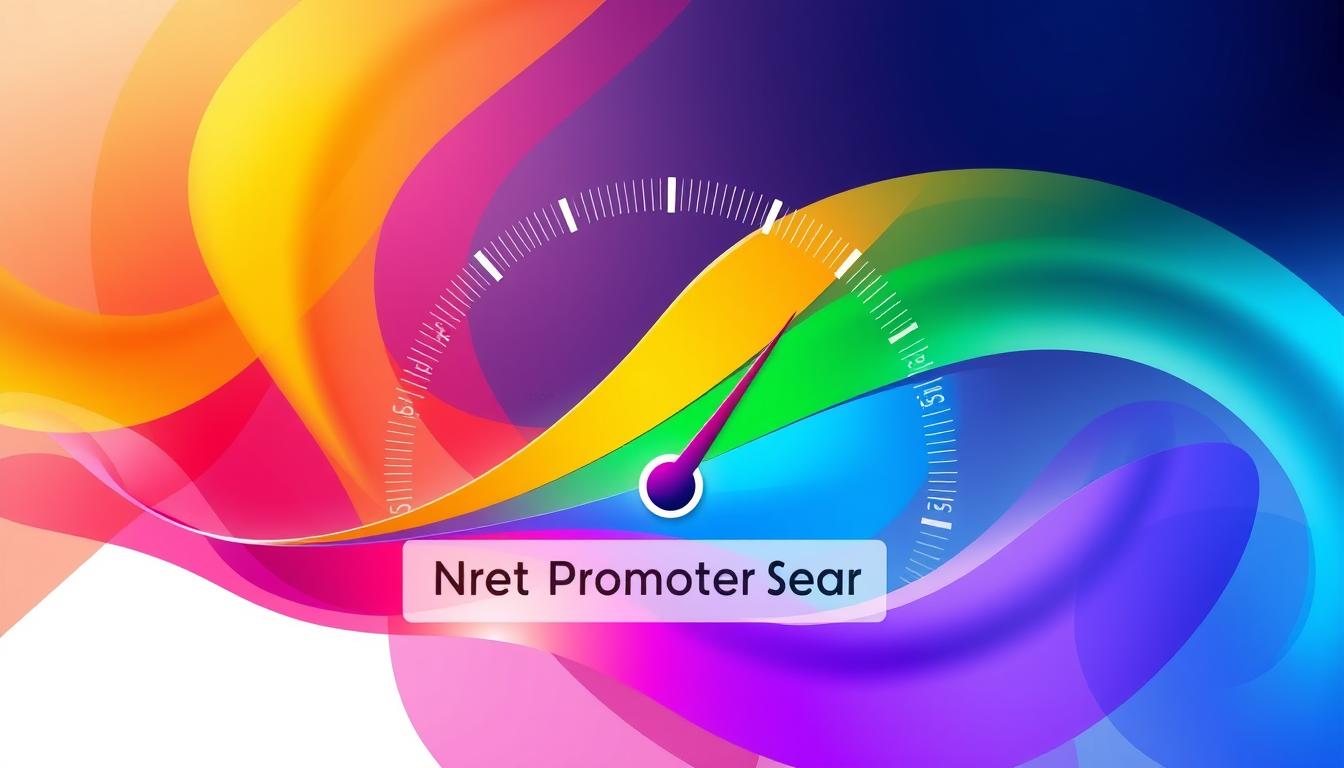In the world of franchise operations, achieving consistency is crucial for the success of our brand. By employing the Net Promoter Score (NPS) as a strategic tool, we can effectively measure and enhance customer satisfaction across different locations. Understanding our customers’ perceptions helps us establish uniform experiences that reinforce brand loyalty, a key to retaining our customer base. The implementation of franchise business NPS not only encourages open dialogue with our clients but also enables us to refine our customer interactions, fostering a more cohesive approach to service delivery and overall performance.
Key Takeaways
- Net Promoter Score is essential for measuring customer satisfaction in franchises.
- Consistent customer experiences enhance brand loyalty.
- Franchise business NPS promotes active feedback loops.
- Implementing NPS leads to improved customer interactions.
- Uniformity in service is pivotal for franchise success.
Understanding the Importance of NPS in Franchise Businesses
In today’s competitive market, understanding customer sentiment plays a critical role in franchise success. The Net Promoter Score definition serves as an essential metric to gauge this sentiment, focusing specifically on customer loyalty and satisfaction. By measuring how likely customers are to recommend a business, we gain valuable insights into their overall experience.
What is Net Promoter Score?
The Net Promoter Score is calculated through a straightforward survey asking customers how likely they are to recommend a franchise to others. Respondents score their likelihood on a scale from 0 to 10. Based on their scores, customers are categorized into three groups: promoters, passives, and detractors. The importance of NPS lies in its ability to quantify customer feedback, allowing franchises to analyze their strengths and weaknesses in customer satisfaction analysis.
The Role of NPS in Customer Loyalty
NPS directly influences customer loyalty, a crucial factor for franchises aiming for sustained growth. High NPS scores indicate a solid customer base willing to advocate for the brand, fostering trust and repeat business. In competitive environments, this advantage can lead to attracting new customers as well. By leveraging the importance of NPS, we can enhance strategies that contribute to lasting relationships with our clientele.
How Franchise Businesses Implement NPS
Successfully launching an NPS program requires a strategic approach. We must prioritize establishing clear objectives that align with our franchise operations, ensuring we understand what we aim to achieve with the NPS system. Once objectives are set, it is crucial to design effective survey questions that elicit valuable feedback from our customers.
Steps to Launch an NPS Program
The following steps will guide us through launching an effective NPS program:
- Define the purpose and goals of our NPS program.
- Select the appropriate tools and technology for feedback collection.
- Create survey questions that are straightforward and relevant.
- Choose the timing and frequency for distributing surveys.
- Train employees on the importance of NPS and how to encourage feedback.
Gathering and Analyzing Feedback
Effective NPS feedback gathering allows us to gain critical insights. We must ensure our methods are user-friendly to maximize participation. Analyzing customer feedback is essential for identifying trends and areas needing improvement. Here’s a structured approach to gather and analyze feedback:
| Step | Description |
|---|---|
| Collect Data | Utilize online surveys and email to gather feedback efficiently. |
| Segment Responses | Group feedback by demographics or service type for deeper analysis. |
| Identify Patterns | Look for common themes within responses to highlight concerns. |
| Report Findings | Present data visually for easy comprehension and actionability. |
| Implement Changes | Use insights to make informed decisions and enhancements. |
Net Promoter Score Best Practices for Franchises
For franchises looking to harness the power of the Net Promoter Score (NPS), establishing effective practices becomes crucial. Consistent franchise survey templates allow us to gather reliable feedback across various locations. This consistency not only streamlines the process but also helps in aligning brand expectations. Meanwhile, focusing on staff training enhances the quality of customer interactions, supporting us in boosting our NPS and ultimately improving customer loyalty.
Creating Consistent Survey Templates
Developing standardized franchise survey templates is one of the NPS best practices we can adopt. A uniform approach in surveys ensures that we collect comparable data across all franchise locations, facilitating clearer analysis. These survey templates should encompass essential questions and customer insights designed to capture the customer experience effectively. Key components of effective franchise survey templates include:
- Clear and concise questions
- A mix of quantitative and qualitative data collection
- Easy accessibility for customers
- Regular updates based on feedback trends
Training Staff to Enhance Customer Interactions
Effective staff training forms the backbone of improving customer interactions. Our commitment to staff development directly influences customer satisfaction and NPS scores. Comprehensive training programs can equip employees with the skills needed to create memorable customer experiences. Essential aspects of staff training include:
- Understanding the importance of NPS and customer feedback
- Effective communication techniques with customers
- Role-playing exercises to simulate various customer scenarios
- Regular performance reviews and constructive feedback sessions
By implementing these NPS best practices, we equip our franchise teams with the tools to gather insightful feedback and foster strong customer relationships. This focused effort will significantly contribute to our brand’s overall success and customer loyalty. Through consistent surveys and staff training, we create an environment that supports continuous improvement and exceptional customer service.
Real-World NPS Case Studies: Insights from Successful Franchises
In today’s competitive market, understanding customer insights through NPS case studies plays a critical role in enhancing service quality. Successful franchises have utilized Net Promoter Score strategies to achieve measurable improvements in both customer satisfaction and operational efficiency. We delve into practical examples from restaurant chains and retail franchises that effectively harnessed NPS to address service gaps and strengthen customer loyalty.
Restaurant Chains Using NPS for Improvement
Numerous restaurant chains have successfully implemented NPS to gauge customer sentiment and pinpoint areas for operational enhancement. By analyzing feedback, these establishments have identified critical pain points, allowing them to elevate the dining experience.
- Chain A revamped its menu based on customer suggestions, resulting in a 20% increase in repeat visits.
- Chain B enhanced employee training programs after receiving feedback about service quality, boosting customer ratings significantly.
- Chain C optimized wait times at peak hours, directly correlating to a notable rise in customer satisfaction scores.
Retail Franchises That Achieved Customer Satisfaction
Retail franchises stand as powerful examples of leveraging NPS insights for operational advancement. By embracing customer feedback, these successful franchises have cultivated greater retail satisfaction and loyalty.
| Franchise | Key Initiative | Outcome |
|---|---|---|
| Franchise D | Launched customer loyalty programs | 30% increase in membership sign-ups |
| Franchise E | Introduced a streamlined checkout process | Reduced wait times and improved customer feedback ratings |
| Franchise F | Enhanced product assortment based on customer requests | 15% boost in sales in targeted categories |
Leveraging Feedback for Continuous Improvement
Franchises can substantially benefit from a structured approach to utilizing NPS data. This process allows us to identify specific areas where enhancements are necessary, aligning our offerings more closely with customer expectations. By engaging in thorough NPS data analysis, we can pinpoint weaknesses in service delivery and product features, paving the way for necessary changes.
Identifying Areas of Improvement with NPS Data
When we analyze NPS data, several patterns often emerge that signal areas needing improvement. These insights provide actionable data that can guide our franchise strategy. Commonly identified issues include:
- Lengthy waiting times for service
- Product availability discrepancies
- Inconsistent staff training
- Unaddressed customer complaints
Each of these factors can dramatically impact customer satisfaction and loyalty. The key lies in our ability to act on these findings promptly to drive continuous improvement in our operations.
Implementing Changes Based on Customer Feedback
For changes to be effective, we must focus on seamless customer feedback implementation. This requires a systematized response plan to guarantee that we address the identified issues. Steps we can take include:
- Developing a feedback loop that allows for real-time responses to customer concerns.
- Training staff to prioritize customer feedback and suggestions.
- Regularly evaluating the impact of changes made based on feedback.
- Utilizing performance metrics to ascertain improvements in customer satisfaction.
By ingraining these processes into our franchise operations, we enhance our capacity for adaptation and responsiveness. Strengthening customer relationships ensures that we not only meet but exceed the evolving expectations of our clientele.
| Improvement Areas | Feedback Source | Action Plan |
|---|---|---|
| Service Speed | NPS Surveys | Streamline service processes |
| Product Range | Customer Reviews | Expand product options offered |
| Staff Interaction | Employee Feedback | Enhance training programs |
| Problem Resolution | Direct Customer Feedback | Establish dedicated support channels |
As we continue to leverage customer insights actively, our franchises will move toward sustained success through continuous improvement.
Measuring Success: NPS and Customer Satisfaction Metrics
In the realm of franchise operations, understanding how NPS metrics relate to customer satisfaction is crucial. We can derive meaningful insights from NPS data that indicate our performance and areas needing improvement. Through effective use of NPS, we can not only gauge customer retention but also engage in competitive benchmarking to ensure our franchises remain leaders in the market.
How NPS Correlates with Customer Retention
NPS serves as a reliable indicator of customer loyalty and retention. A higher NPS score typically suggests that our customers are not only satisfied but are also likely to become advocates of our brand. When our NPS metrics reflect positive feedback, it often translates to better customer retention rates. Strategies aimed at enhancing the customer experience can significantly impact these scores, demonstrating the direct connection between NPS and loyalty.
Using NPS for Competitive Benchmarking
Franchises can utilize NPS as an effective tool for competitive benchmarking. By comparing our NPS scores with those of competitors, we gain valuable insights into our market positioning. This process helps identify strengths and weaknesses relative to industry standards. Using this data, we can tailor our marketing strategies and service offerings to better meet customer expectations and improve overall satisfaction, ensuring sustained growth and competitiveness.
| Franchise Name | NPS Score | Customer Retention Rate |
|---|---|---|
| Franchise A | 75 | 85% |
| Franchise B | 68 | 75% |
| Franchise C | 80 | 90% |
Engaging with NPS metrics not only measures success but also equips us to foster a culture of continuous improvement. By closely monitoring these metrics, we empower our franchises to build stronger relationships with our customers, ultimately enhancing both retention and market positioning.
Challenges in Implementing NPS in Franchise Operations
Franchise operations frequently encounter specific NPS implementation challenges that can hinder the effectiveness of their customer feedback systems. Understanding these hurdles is essential for cultivating a successful NPS strategy within the franchise framework. Recognizing common pitfalls can streamline efforts to foster a culture that embraces customer feedback, ultimately enhancing franchise performance.
Common Pitfalls to Avoid
When implementing NPS, we face numerous franchise operations pitfalls that can compromise the integrity of the feedback process. Key issues include:
- Franchisee Reluctance: Resistance from franchisees to adopt new systems or share data can stall progress.
- Lack of Standardization: Inconsistencies in survey methods across franchises lead to unreliable data.
- Poor Communication: Insufficient communication regarding the value of NPS can cause misunderstandings.
- Ignoring Feedback: Failing to act on customer feedback can diminish trust in the process.
Overcoming Resistance within Franchise Structures
To combat these challenges, we must focus on overcoming resistance within franchise structures. Strategies to facilitate this process include:
- Engaging Franchisees: Involve franchisees in discussions about implementing NPS to increase buy-in.
- Training Programs: Conduct thorough training sessions emphasizing the benefits of utilizing NPS.
- Regular Updates: Provide updates on NPS outcomes to demonstrate its positive impact on business performance.
- Shared Success Stories: Highlight case studies from franchises that successfully adopted NPS and improved customer satisfaction.
| Challenge | Impact | Solution |
|---|---|---|
| Franchisee Reluctance | Slowed adoption of NPS | Engagement and training |
| Lack of Standardization | Inconsistent data | Unified survey methods |
| Poor Communication | Confusion about NPS benefits | Clear messaging |
| Ignoring Feedback | Decreased trust | Action plans based on data |
Future Trends in Franchise NPS Utilization
As we navigate the landscape of franchise operations, it’s vital to understand the future trends in NPS that are shaping our approach to customer feedback. The integration of emerging technologies offers us innovative ways to refine our NPS programs. By embracing technology integration, we can enhance feedback collection and analysis, ultimately leading to improved customer experiences.
Integrating Technology to Enhance NPS Programs
Technology is playing a crucial role in redefining how we approach Net Promoter Score programs within franchises. Machine learning algorithms now allow us to collect and analyze feedback in real time. This shift enables us to react promptly to customer insights, refining our services based on their experiences. The rise of mobile technologies and cloud-based solutions facilitates seamless survey distribution, making it easier for customers to provide input.
The Rise of Automated Feedback Systems
Automated feedback systems are becoming essential in streamlining our NPS processes. These systems allow us to gather insights efficiently, reducing the manual effort involved in feedback collection. Utilizing automated feedback systems can provide continuous data that informs our operational strategies. The ability to analyze trends rapidly keeps us ahead of customer expectations, ensuring we remain responsive to their needs.

In conclusion, as we look ahead, embracing these technology-driven solutions will help us harness the full potential of NPS programs. By focusing on technology integration and automated feedback systems, we position our franchises to achieve lasting customer loyalty, fostering a culture of continuous improvement.
Conclusion
In summary, the benefits of implementing a Net Promoter Score (NPS) system within franchise businesses are extensive and impactful. By adhering to best practices like creating consistent survey templates and training staff for enhanced customer interactions, we can maintain franchise consistency and build lasting relationships with our clients. This ensures that our franchises remain customer-centric and adaptable to market demands.
We’ve explored how effective gathering and analyzing NPS feedback can lead to continuous improvement, contributing to increased customer satisfaction. As we integrate these insights into our operational strategies, the NPS effectiveness becomes a transformative tool that not only helps us identify areas requiring attention but also serves as a metric for assessing overall franchise performance.
Encouraging franchise owners and managers to leverage NPS is essential for securing a competitive edge in today’s dynamic landscape. By focusing on customer feedback and engaging with their needs, we solidify our commitment to quality service and satisfaction, paving the way for sustainable growth in our franchises.
FAQ
What is Net Promoter Score (NPS) and why is it important for franchise businesses?
Net Promoter Score (NPS) is a metric that measures customer loyalty by assessing their likelihood of recommending a franchise to others. It is crucial for franchise businesses because it helps gauge customer satisfaction, influences brand loyalty, and ultimately impacts customer retention and growth in a competitive market.
How can we effectively implement an NPS program in our franchise?
To implement an effective NPS program, we should start by defining our objectives, designing clear survey questions, and establishing efficient feedback collection systems. Gathering and analyzing customer feedback are also essential to ensure we derive actionable insights that will help us enhance our customer experience.
What are some best practices for maintaining consistency across different franchise locations using NPS?
Best practices include creating consistent survey templates across all locations to gather uniform feedback. Additionally, training staff to improve their customer interactions is vital, as effective engagement can significantly influence customer satisfaction and NPS scores.
Can you share examples of successful franchises using NPS?
Yes, there are notable case studies of successful franchises, such as certain restaurant chains that have utilized NPS to identify service gaps and enhance customer satisfaction. Additionally, retail franchises leveraging NPS insights have successfully driven customer loyalty and improved their operational strategies.
How does NPS correlate with customer retention?
What challenges might we face when implementing an NPS program in franchise operations?
Common challenges include franchisee resistance to sharing data or adopting new systems, which can hinder the process. Overcoming these challenges requires fostering a culture that values and utilizes feedback across the franchise network.
What future trends should we be aware of in NPS utilization for franchises?
Emerging trends include the integration of advanced technology, such as AI and machine learning, to enhance NPS programs. These technologies allow for real-time feedback collection and data analysis, improving how franchises respond to customer needs through automated feedback systems.
Related Posts
- NPS Feedback Loops: Turning Negative Feedback into Opportunities – NPS and Customer Feedback Loops
- The Role of NPS in a Customer-Centric Strategy
- How NPS Helps Strengthen Feedback Loops with Customers – NPS and Customer Feedback Loops
- Why High NPS Companies Outperform Their Competitors
- How to Measure NPS Across Online and Offline Retail Channels – NPS in Retail
- How NPS Helps Identify Issues Post-Product Launch – NPS and Product Launches
- How NPS Can Help Validate Customer Feedback Trends – NPS and Customer Feedback Systems
- How Customer Success Teams Can Use NPS to Improve Satisfaction – NPS for Customer Success Teams






